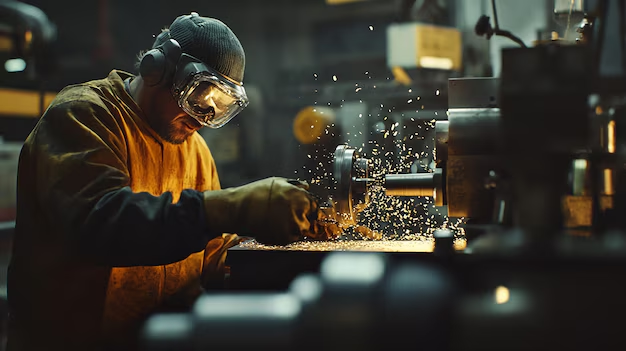
Custom MS Fabrication refers to the tailored creation of metal structures, components, or systems using Mild Steel (MS) according to specific client requirements. Mild Steel, known for its ductility, malleability, and affordability, is a popular material in construction, manufacturing, and various industrial applications.
Key Aspects of Custom MS Fabrication:
-
Material Selection:
- Mild Steel Properties: MS is preferred due to its strength, weldability, and cost-effectiveness. It can be easily shaped and modified, making it ideal for custom fabrication projects.
- Grades of MS: Depending on the project requirements, different grades of MS are selected to ensure the right balance of strength, flexibility, and durability.
-
Design and Engineering:
- Custom Designs: Fabricators work closely with clients to understand their needs and translate them into detailed designs. This could include architectural elements, structural components, or industrial parts.
- Engineering Precision: Advanced tools and software are used to create precise designs that meet specific load-bearing, aesthetic, and functional criteria.
-
Fabrication Processes:
- Cutting: The first step involves cutting MS sheets, rods, or bars into the required shapes and sizes using methods like laser cutting, plasma cutting, or shearing.
- Forming: The cut pieces are then bent, rolled, or formed into the desired shapes using techniques like press braking, rolling, or stamping.
- Welding: Pieces are joined together through various welding techniques (MIG, TIG, arc welding) to form the final structure or component.
- Finishing: The fabricated product is then finished to improve its appearance and durability. This might include grinding, sanding, painting, or applying protective coatings to prevent corrosion.
-
Customization and Versatility:
- Tailored Solutions: MS fabrication allows for extensive customization, whether for industrial machinery parts, decorative architectural elements, or bespoke structural components.
- Versatile Applications: Custom MS fabrications are used across various industries, including construction, automotive, machinery, and infrastructure projects.
-
Quality Control:
- Inspection: Each fabricated piece undergoes rigorous quality checks to ensure it meets the required specifications and standards.
- Testing: Depending on the application, the fabricated components may undergo testing for strength, durability, and performance under specific conditions.
-
Installation and Support:
- On-Site Installation: Many custom MS fabrication projects include on-site installation services to ensure that the fabricated components are correctly integrated into the larger system or structure.
- After-Sales Support: Continuous support is often provided for maintenance, repairs, or further customization.
Applications of Custom MS Fabrication:
- Construction: Beams, columns, trusses, and other structural elements.
- Automotive: Custom frames, chassis components, and specialized parts.
- Industrial: Machinery parts, conveyor systems, and custom equipment.
- Architectural: Gates, railings, staircases, and decorative features.
Custom MS Fabrication is essential for projects requiring unique, reliable, and cost-effective metal solutions, making it a cornerstone in both industrial and architectural domains.


